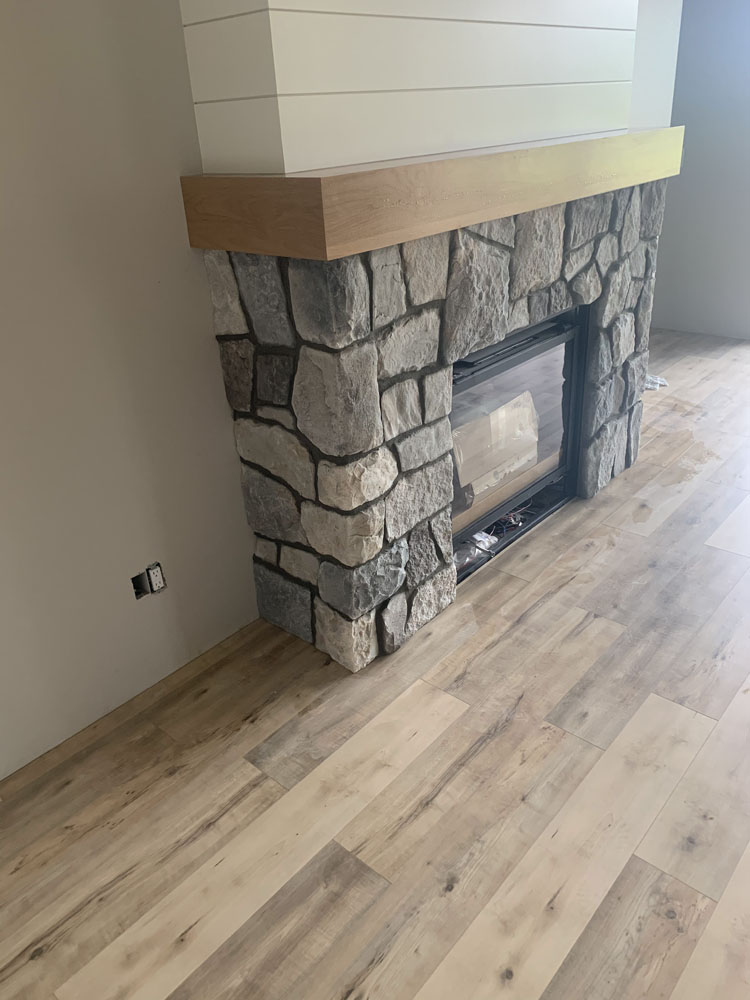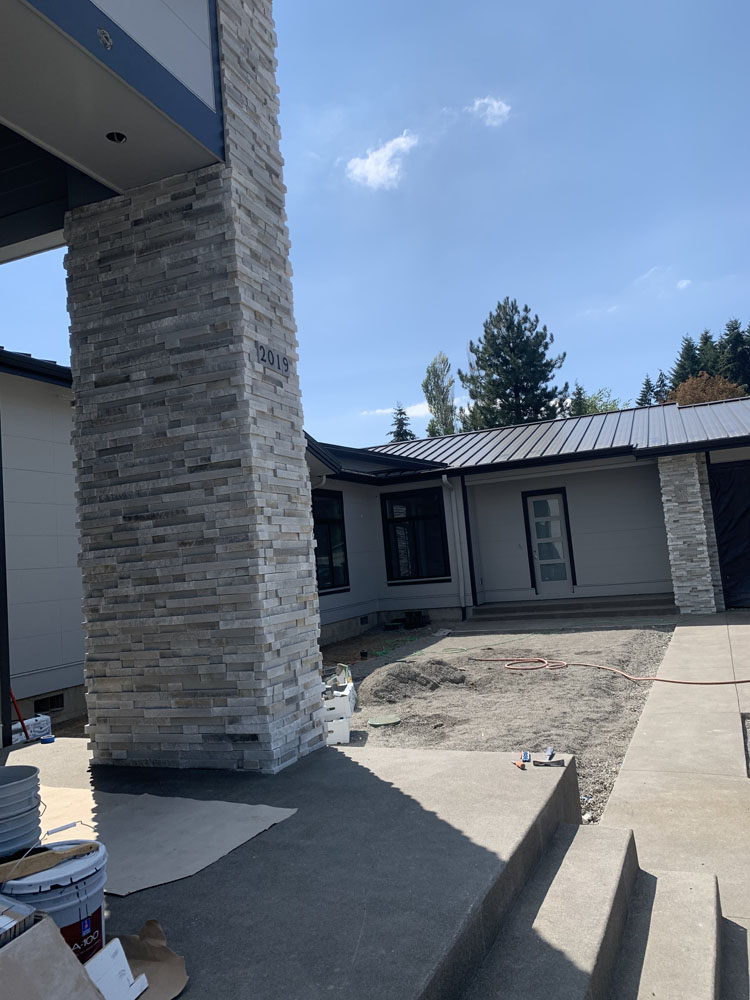Introduction
Are you looking to enhance your home's curb appeal, improve functionality, and add value? If so, installing a masonry walkway could be Masonry Contractor the perfect solution for you. A masonry walkway is not just about aesthetics; it's about creating a durable, functional path that complements your landscape while standing the test of time. In this article, we will explore the myriad benefits of installing a masonry walkway in your home, delving into their design versatility, durability, maintenance requirements, and much more.
The Benefits of Installing a Masonry Walkway in Your Home
Masonry walkways offer numerous advantages over traditional pathways made from other materials like gravel or asphalt. But what exactly are these benefits?
1. Enhanced Curb Appeal
When it comes to first impressions, appearance matters significantly.
- Visual Appeal: Masonry walkways come in various styles and colors. Whether you prefer classic brick or modern concrete pavers, there's an option to fit every taste. Landscape Integration: A well-designed masonry walkway can seamlessly integrate with your garden or yard, making your outdoor space more inviting.
2. Durability and Longevity
One of the most significant advantages of masonry walkways is their remarkable durability.
- Weather Resistance: Unlike wooden paths that can rot or degrade under harsh weather conditions, masonry materials are inherently robust against rain, snow, and sun exposure. Longevity: With proper installation and care, masonry walkways can last decades—sometimes even centuries—saving you money on replacements.
3. Low Maintenance Requirements
Let’s face it: no one wants to spend their weekends fixing up their yard.
- Easy Cleaning: A simple sweep or rinse with water is often enough to keep your masonry walkway looking fresh. Repair-Friendly: If damage occurs (which is rare), individual stones can be replaced without needing to redo the entire pathway.
4. Increased Home Value
Investing in a masonry walkway can yield impressive returns on investment when it comes to home value.
- Property Appeal: Real estate agents often note that beautifully designed outdoor spaces increase property desirability. Market Trends: Homes with well-maintained landscapes tend to sell faster and at higher prices compared to those without.
5. Safety Features
Safety should always be a priority when considering outdoor pathways.
- Slip Resistance: Many masonry materials have natural textures that provide excellent grip even when wet. Stable Surface: Unlike gravel paths that can shift underfoot or become uneven over time, masonry walkways maintain their structure well.
6. Eco-Friendly Options
Sustainability is increasingly important in today’s world.
- Natural Materials: Many masonry options use locally sourced stone or recycled materials. Water Permeability: Some designs facilitate water drainage to reduce runoff and promote groundwater recharge.
Types of Masonry Walkways You Can Install
When contemplating the installation of a masonry walkway, it’s essential to understand the different types available:
7. Brick Walkways
Characteristics: Brick walkways are classic and timeless but also incredibly versatile in design.
Pros:
- Comes in various colors Provides a rustic appearance
Cons:
- Can be pricier than other options
8. Slate Walkways
Characteristics: Slate offers a unique texture and color variation that can enhance any landscape design.
Pros:
- Naturally slip-resistant Extremely durable
Cons:
- May require sealing for longevity
9. Concrete Paver Walkways
Characteristics: Concrete pavers allow for modular designs and intricate patterns.
Pros:
- Cost-effective Available in many shapes and sizes
Cons:
- Can crack under extreme weather if not installed correctly
Designing Your Masonry Walkway
Creating a stunning masonry walkway involves thoughtful planning:
10. Choosing the Right Pathway Design
Consider how you want the pathway to function:
- Should it serve as a direct route from point A to point B? Or do you envision it meandering through your garden?
11. Selecting Colors and Textures
The color palette should harmonize with your existing landscape:
- Opt for neutral tones for a clean look. Choose vibrant colors for dramatic flair!
12. Incorporating Lighting Features
Adding lighting not only enhances beauty but also safety:

- Consider solar lights along the edges for eco-friendly illumination. Use spotlights on plants adjacent to the path for added ambiance.
Installation Process of Your Masonry Walkway
Understanding how your masonry walkway will be installed helps set expectations:
13. Preparing the Site
Before laying any stones:
Clear debris from the area Mark off the desired shape using stakes and string14. Creating a Stable Base Layer
A solid foundation is crucial:
Excavate about 6 inches deep. Fill with crushed stone or gravel for drainage stability.15. Laying Out Your Material
Now comes the fun part!
Start laying bricks/pavers from one end toward another while ensuring alignment. Use spacers where necessary to create uniform gaps between materials.Maintaining Your Masonry Walkway Over Time
To ensure longevity, regular maintenance is key:
16. Seasonal Cleaning Tips
Cleaning varies by season:
- Spring/Fall: Remove leaves and debris regularly. Winter: Keep pathways clear of snow using shovels rather than salt which can erode surfaces over time!
17. Regular Inspections for Damage Control
Make it a habit to check for cracks or loose stones every few months!
Repair minor issues promptly before they escalate into larger problems. Reseal surfaces when needed (typically every few years).FAQ Section
18. What types of materials are best for masonry walkways?
Common choices include brick, slate, concrete pavers, limestone, and bluestone—all known for their durability and aesthetic appeal!
19. Are masonary walkways slippery when wet?
Generally speaking, many types feature slip-resistant surfaces; however adding textured finishes can further enhance safety!
20. How much does it cost to install a masonry walkway?
Costs vary widely depending on material choice & installation complexity but typically range from $10-$30 per square foot including labor!

21. Can I install a masonry walkway myself?
While DIY enthusiasts may take on this project effectively—with sufficient research & tools—hiring professionals ensures optimal results especially with complex designs!
22.Does building permits required?
Local regulations differ regarding permits; contacting authorities beforehand can save headaches later down-the-line!
23.Is there an ideal season for paving installation?
Spring & early fall tend provide optimal conditions regarding temperature/rainfall levels favoring successful installations!
Conclusion
In conclusion, installing a masonry walkway offers numerous benefits ranging from aesthetic enhancements to increased property value and long-term durability. Its versatility makes it suitable for various styles while requiring minimal maintenance over time—making it an ideal choice whether you're sprucing up your home or preparing it for sale!
Investing in quality craftsmanship guarantees you'll enjoy these advantages all year round while creating lasting impressions on visitors who enter through beautifully designed paths! So why wait? Start planning your dream masonry walkway today!